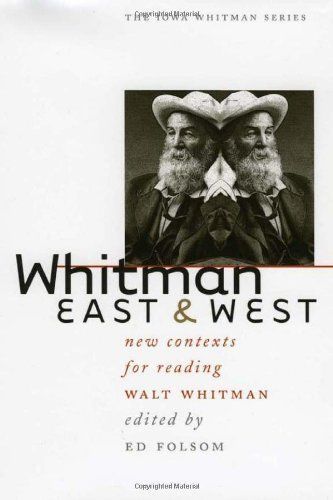
Whitman East and West New Contexts for Reading Walt Whitman
In Whitman East and West, fifteen prominent scholars track the surprising ways in which Whitman's poetry and prose continue to be meaningful at the beginning of the twenty-first century. Covering a broad range of issues—from ecology to children's literature, gay identity to China's May 4th Movement, nineteenth-century New York politics to the emerging field of normality studies, Mao Zedong to American film—each original essay opens a previously unexplored field of study, and each yields new insights by demonstrating how emerging methodologies and approaches intersect with and illuminate Whitman's ideas about democracy, sexuality, America, and the importance of literature. Confirming the growing international spirit of American studies, the essays in Whitman East and West developed out of a landmark conference in Beijing, the first major conference in China to focus on an American poet. Scholars from Asia, Europe, and North America set out to track the ways in which Whitman's poetry has become part of China's cultural landscape as well as the literary landscapes of other countries. By describing his assimilation into other cultures and his resulting transformation into a hybrid poet, these essayists celebrate Whitman's multiple manifestations in other languages and contexts.